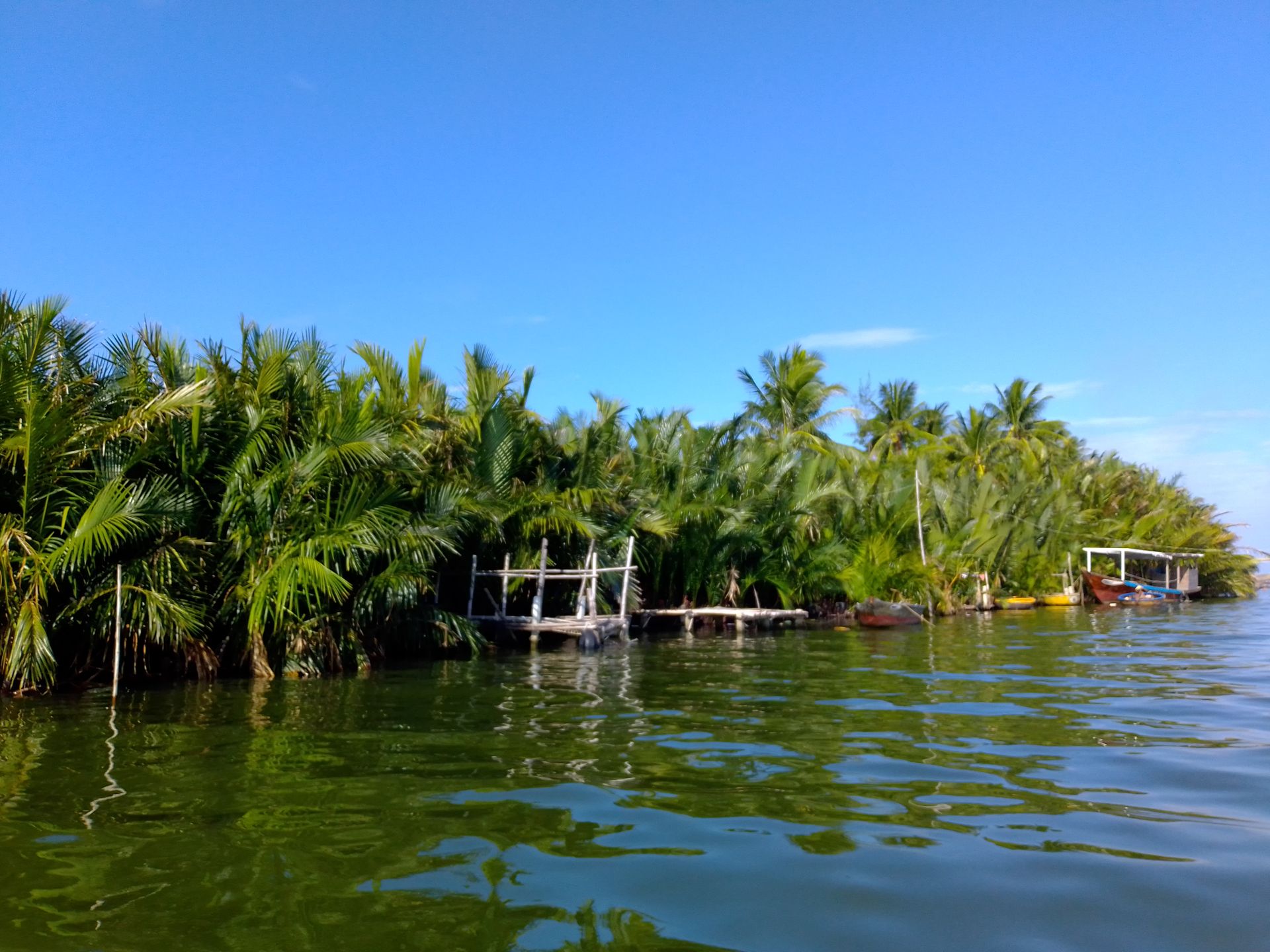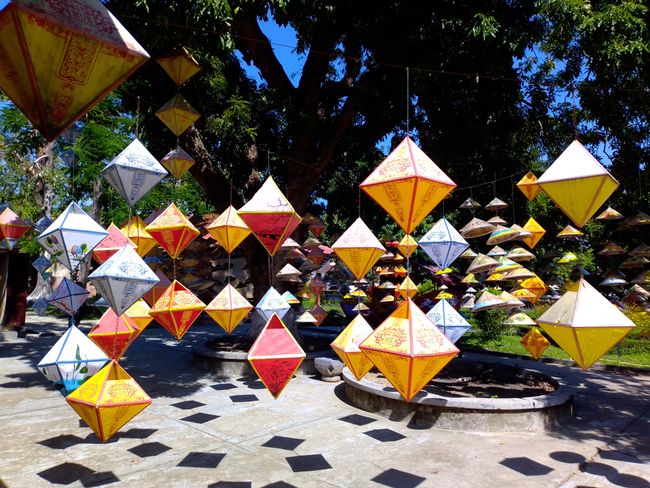
oneworldoneyear
vakantio.de/oneworldonedream
Na orphelinat na Sagain
Ebimisami: 10.11.2019
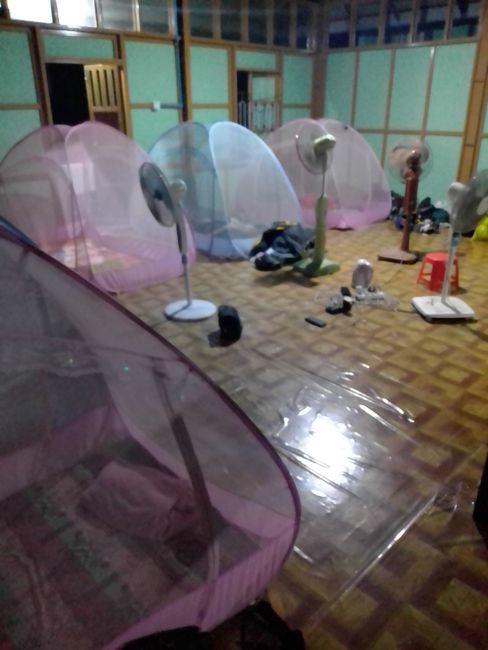
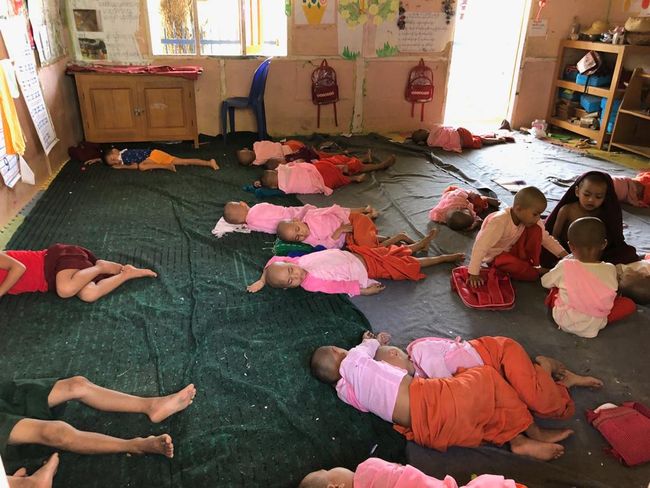
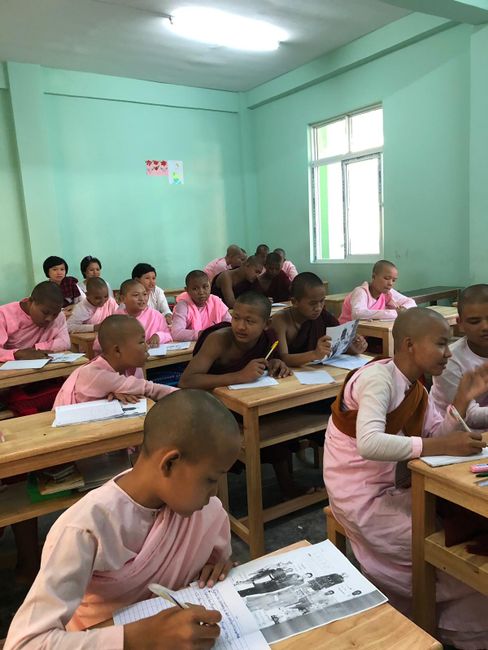
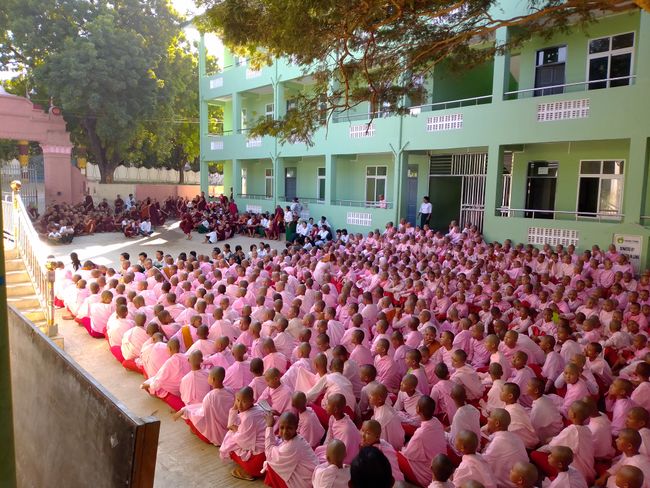
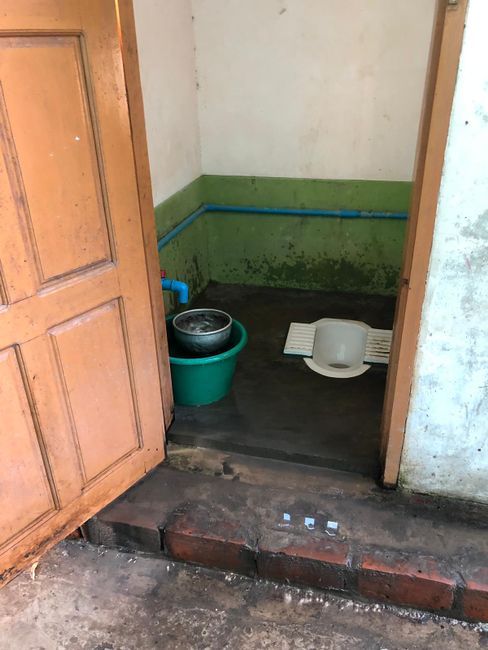
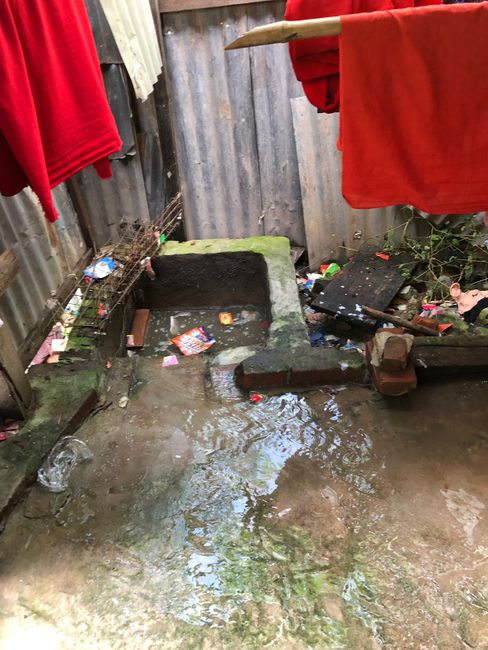
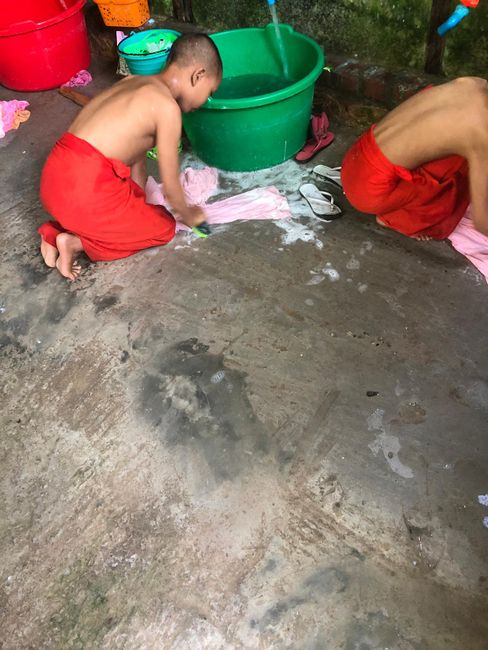
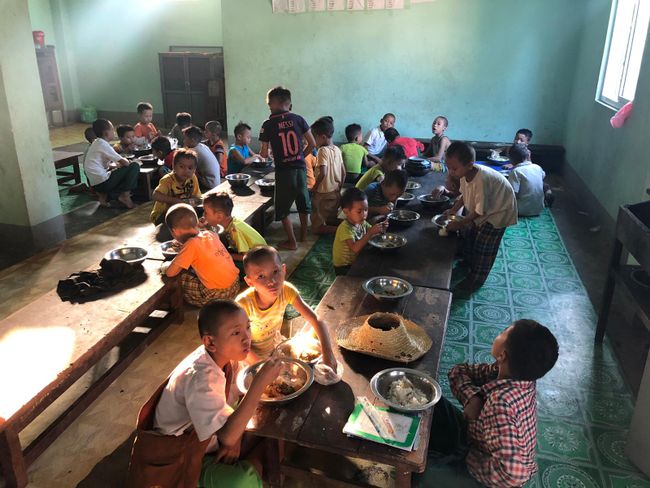
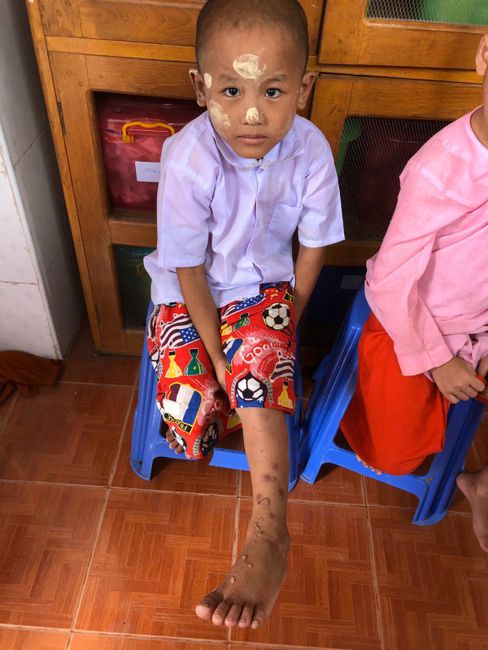
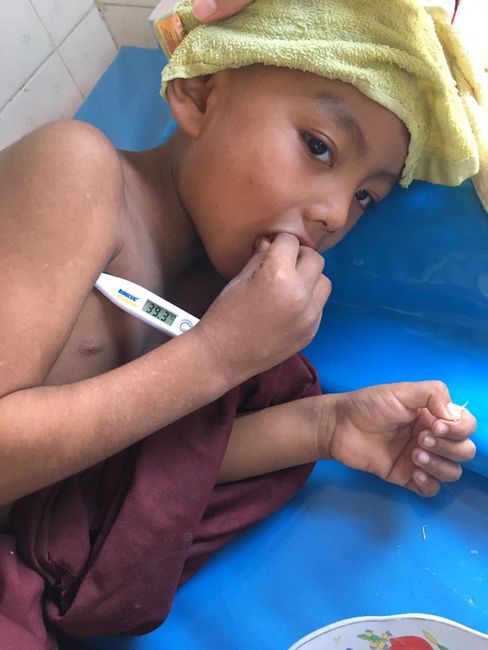
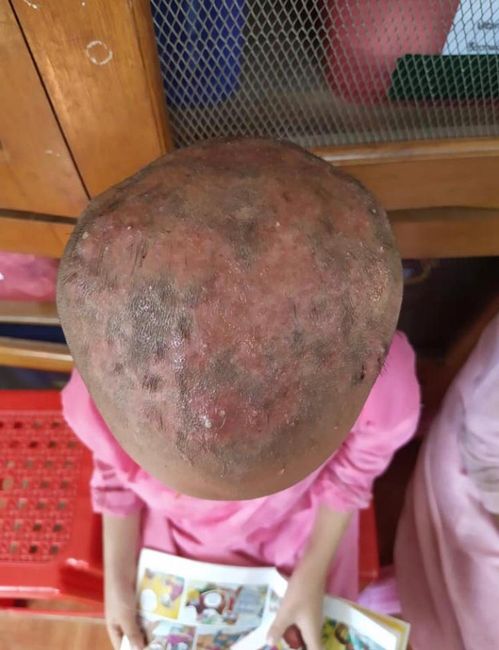
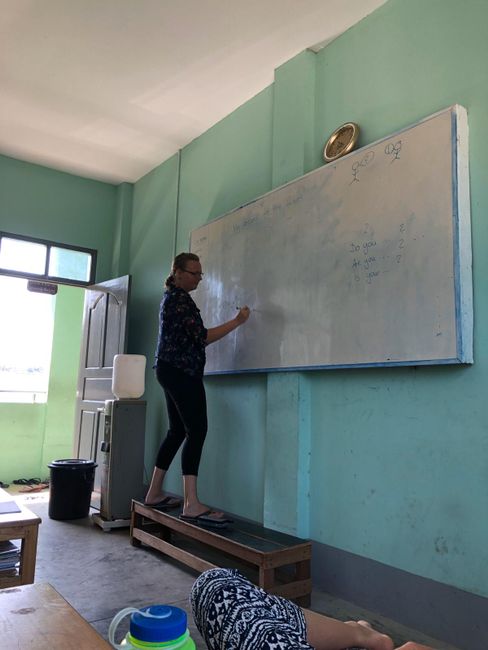
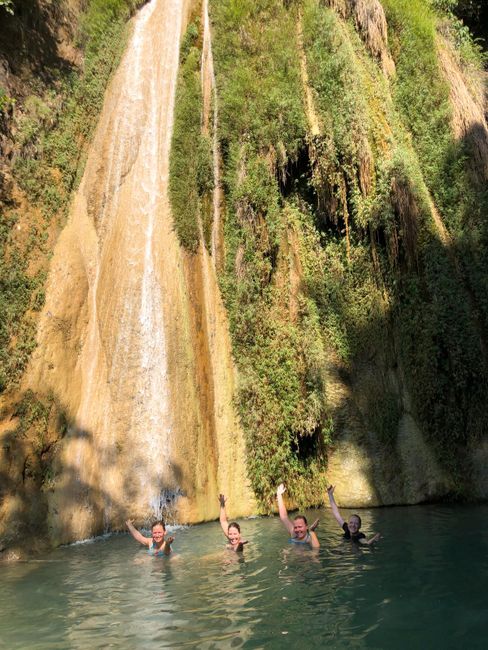
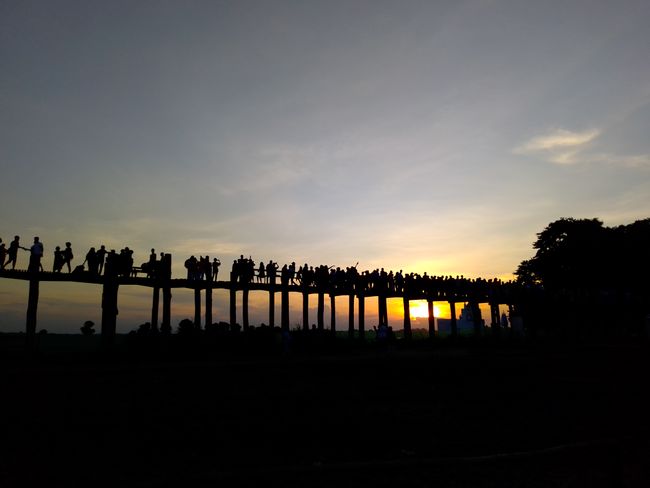
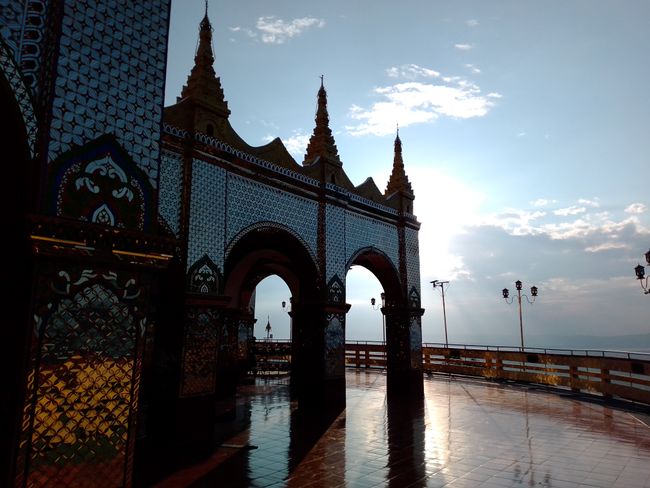
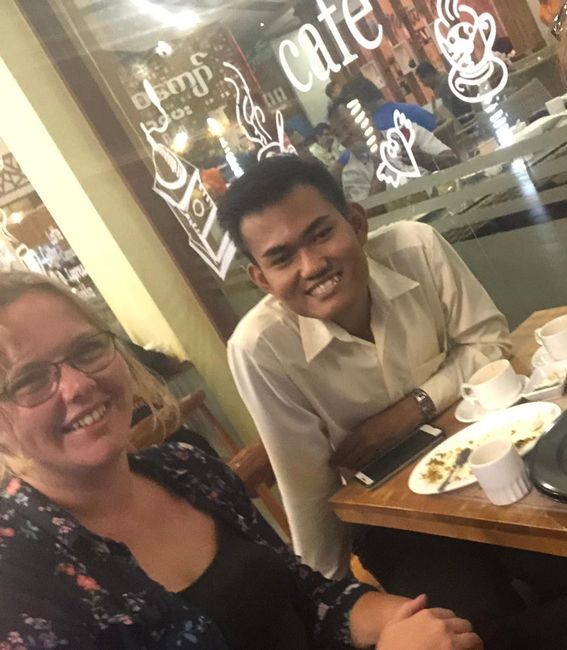
Abonnez-vous na Bulletin ya Sango
After relaxing days at the beach and the thrill of the hotel fire in Yangon, we took the beloved propeller plane to the north of Myanmar, to Mandalay.
We spent one night at Hotel Aurora and quickly got into conversation with a hotel employee, Thuya Thatti. We told him that we wanted to volunteer at an orphanage in Sagain for the next two weeks. He was overwhelmed and thanked us for wanting to do good in his country. We exchanged Facebook contacts and he promised to visit us at the orphanage. Overwhelmed by his enthusiasm, we set off.
After a short drive of about an hour, we finally arrived at the Buddhist Aung Myae Oo Monastery. This orphanage has been in existence since 2003 and currently houses about 380 children permanently. Another 3,000 children between the ages of 3 and 18 come to the kindergarten and school every day to receive free education - unfortunately, not a given and the only chance for a future in a beautiful but very poor country. The children who live in the orphanage have either lost their parents or their parents are too poor to support them. The school has nearly 90 teachers, some of whom are only 18 years old. The classes consist of 50-70 students per class. The teachers mostly do not have a qualified education and only receive a salary of €28 per month, which is too little even in Myanmar to survive. Their salary is largely funded by donations from tourists who are brought in daily and take numerous photos of the children and the grounds. If enough donations are not collected, the teachers cannot be paid and have to quit.
The children live in extremely simple conditions and even at a young age, they are completely on their own. There are no educators or contact persons because they cannot be paid either. They sleep with about 70 people in one room on wooden panels screwed together. There are no mattresses, pillows, or privacy. Likewise, there is no one to make sure when the little ones go to sleep, so they often stay up late into the night. They crowd around the wash station every day at 4 p.m. The wash station consists of faucets with buckets underneath and is open for one hour. Many children do not know how to clean themselves as they have never learned this and "shower" with the cold water from their buckets, mostly fully clothed. They are also responsible for washing their clothes by hand at the age of 4-5, which often leaves them dirty. Due to the lack of hygiene and the dirty wash stations that are not cleaned, as well as the close proximity in the dormitory, many diseases arise and spread quickly.
These diseases, especially skin diseases, are treated in the so-called clinic on the premises. This consists of a room with medicine and bandages and a backyard with washing facilities. Due to the lack of money (a total of €100 per month is available for medication and salary), there are no nurses or even a doctor. The clinic can only be maintained through the work of volunteers, who mainly disinfect and bandage superficial wounds or simply give the children some affection, which they greatly miss. However, the volunteers have no medical background and try to treat the children with common sense and Google. The clinic is actually equipped with equipment for larger treatments thanks to donations from former volunteers, but due to a lack of medical knowledge, none of the volunteers is able to use it.
We ourselves have taken on various tasks. Together, we taught one hour of English in the morning and evening for voluntary participants. These classes were very well attended and served as communication exercises on everyday topics such as weather, football, popular rappers, culture, etc. The students, whose knowledge of English was often very basic, were highly motivated and very grateful for the opportunity to learn English and speak with people from different cultures. They showed us a lot of kindness and affection and surprised us with small handmade gifts or texts they wrote in their free time. It touched us deeply that these children, who have very little and often have a difficult life, still wanted to bring us joy.
I also assisted an English teacher in the 6th grade during the day. The students' and teachers' level of English is poor, and there are few didactically prepared lessons. So, English lessons mainly consist of spelling exercises and translations into Burmese. In line with this, we also provided English lessons for the teachers on Saturdays and had our struggles to get them to speak in complete sentences.
In the mornings and afternoons, Christina spent two hours each in the clinic, cleaning the little patients and treating superficial wounds. Since she had no experience with this, it was an experience that brought many new impressions but also concerns about illnesses. Especially here, the shortcomings of the facility were evident, especially since communication with the children was extremely difficult because they speak hardly any English and there was rarely an adult present who spoke the local language. Unfortunately, there is also no ongoing documentation of the children's illnesses or treatments.
Fortunately, one day our new friend Thuya Thatti kept his promise and visited us at the orphanage. I rode with him on his motorcycle through Sagain and bought new disposable gloves, which he even helped finance, even though he does not earn a generous salary himself. But he was so eager to help that he couldn't be deterred. He also willingly helped out in the clinic in the morning and facilitated communication with the children.
We left the monastery after nearly two weeks with many new impressions and traveled to Mandalay, where we met Thuya Thatti for dinner and even received souvenirs from him. Once again, we were surprised at how someone who has so little in life is so open and hospitable and wants to share.
Our visa expired and after 30 days in Myanmar, we flew to Thailand. In comparison to Myanmar, this country already seems almost Western and developed to us. With some distance and many messages from our students (who share a cellphone and write: 'teachers, come fast!') and new friends in Myanmar urging us to come back quickly, we actually decided to go back and work at the orphanage a second time. Three weeks ago, this was unimaginable for us, but the fate of the young people and the great warmth that we experienced in this country made a deep impression on us and moved us deeply.
We will fly back in a few days and are happy to be able to continue helping!
Abonnez-vous na Bulletin ya Sango
Eyano
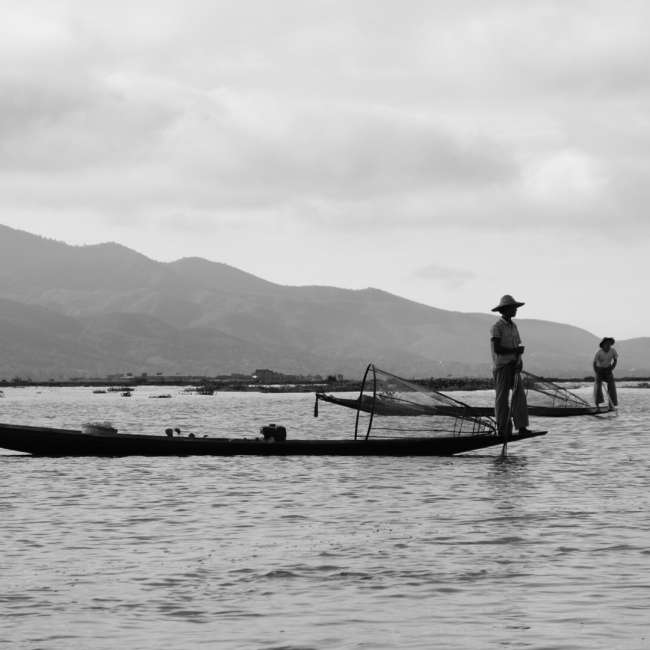
Lapolo ya mobembo Myanmar, mboka
